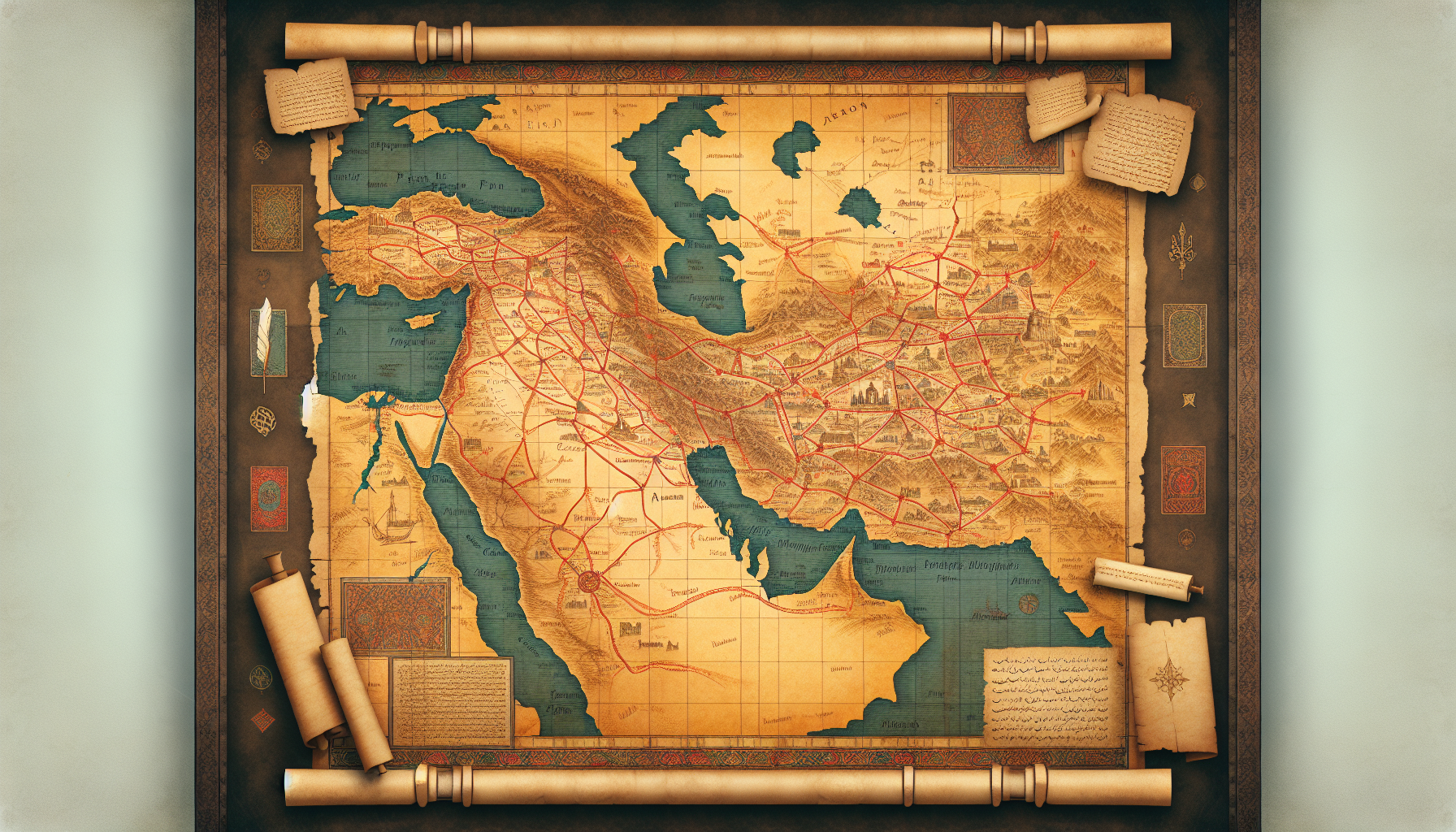The historical narrative of Alexander the Great’s ascent to power and his subsequent campaigns against Persia illustrates a pivotal moment in ancient history. Following the assassination of his father, Philip II of Macedon, Alexander faced the dual challenge of consolidating his authority while maintaining the expansive vision of conquest his father had established. In a series of decisive actions, he not only quelled potential threats within Macedon but also laid the groundwork for his ambitious imperial aspirations, characterized by both military aggression and strategic ruthlessness.
This examination focuses on Alexander’s transformation from prince to monarch, underscoring how his upbringing under Aristotle shaped his leadership philosophy. The lessons learned during his early consolidation of power set the stage for his legendary confrontations with the Persian Empire. The interplay of personal ambition and the unresolved legacy of his father would ultimately catalyze one of history’s most notable military endeavors, contributing to a rich narrative of legacy and conquest in the ancient world.
The Legacy of Philip II
Ambitious Plans for Persia
As you delve into the legacy of Philip II, you will find that his aspirations were intricately woven into the fabric of Macedonian imperial strategy. Philip envisioned a unified Greek front against Persia, a realm he regarded not only as a formidable adversary but also as a treasure trove awaiting liberation. His approach was marked by a dual concern: the subjugation of Persia and the elevation of Macedonia to preeminence in the Hellenic world. The strategic blueprint he crafted laid the groundwork for a full-scale invasion, intending to harness the fragmented nature of the Persian Empire, whose internal strife undercut its strength. You will see that Philip’s ambition was not merely military; it was philosophical, seeking to reshape the Greek identity while asserting Macedonian dominance over a declining empire.
Assessment of Persian Weakness
In assessing the target of his ambitions, Philip conducted a meticulous study of Persian vulnerabilities. He recognized that the vast diversity of territories and peoples under Persian rule presented both opportunities and challenges. Philip noted the empire’s overextended supply lines and its historical susceptibility to rebellion, especially in its satrapies. This intelligence informed his strategies, as he aimed to exploit these fractures through both diplomatic means and military might. By focusing on the discontent among the subject peoples of Persia, Philip envisioned a campaign that would not only dismantle the central authority of the Achaemenids but also incorporate local resistance into a broader Macedonian campaign of liberation.
Military Innovations and Reforms
You must acknowledge that Philip II’s military innovations were revolutionary and transformative. He reformed the Macedonian army into a more organized, disciplined, and formidable force that could execute complex tactical maneuvers. The introduction of the phalanx formation, coupled with the use of lighter troops and cavalry, allowed for increased flexibility in battle. Under your scrutiny, you would notice that these reforms were not solely about enhancing combat effectiveness; they were about instilling a sense of unity and purpose among the soldiers who would soon embark on the grand campaign against Persia. It was this well-prepared military apparatus that ultimately would pass to Alexander, firmly establishing the Macedonian army’s reputation as a formidable force on the battlefield.
The Impact of Philip II’s Assassination
Immediate Consequences for Macedonia
The assassination of Philip II marked a tumultuous turning point for Macedonia. As you explore this unanticipated shift in leadership, you will discern the immediate chaos that ensued. The sudden vacuum of power put the kingdom at risk, exposing it to internal conflicts and external threats. The nobles, warriors, and people who had rallied around Philip were left disoriented, uncertain of their future. Alexander, now encumbered with the mantle of responsibility, had to mobilize quickly to maintain the fragile cohesion of the state, preparing it not only for impending military endeavors but also for the political intricacies inherent in leading a newly unified territory.
The Role of Court Rivalries
You will find that the court of Macedonia was rife with rivalries and factions that had long been charred by Philip’s reign. These tensions were exacerbated after his demise, as various factions sought to bend the new ruler to their will or to seize power for themselves. Alexander’s ascension was not merely the continuation of his father’s policies but rather a delicate dance of political stratagem. In navigating these treacherous waters, you will notice that he had to confront potential traitors and disgruntled nobility, an endeavor that called for shrewd intelligence and decisive action.
Challenges Faced by Alexander
Upon taking the throne, the young Alexander encountered numerous challenges that tested his resolve and strategic acumen. Rebellions arose like weeds, fuelled by dissent and the perception of vulnerability after Philip’s death. Alexander had to act swiftly and decisively to crush these movements and signal to both enemies and allies alike that he embodied the strength and determination befitting a Macedonian king. His early military responses to these challenges would lay the foundation for his reputation as a ruler who would not waver in the face of adversity.

Alexander’s Rise to Power
Consolidating Power in Macedonia
In your examination of Alexander’s consolidation of power, it becomes evident that he employed a mixture of force and diplomacy. After overcoming immediate threats to his reign, including retribution against potential rivals, he sought to solidify his authority through strategic alliances with powerful nobles and military leaders. His marriage to the daughter of a leading Macedonian general can be seen as a calculated move to further entrench his position. As you analyze these developments, you will appreciate the stark contrast between the youthful idealism of the new king and the brutal political landscape that demanded shrewdness and resilience.
Elimination of Potential Rivals
You must consider Alexander’s ruthless approach to eliminating potential rivals as part of his larger strategy to ensure stability. History recounts various instances where he executed opponents swiftly and with little remorse, each act serving to send a clear message to those who might harbor dissent. It was within this crucible of political ruthlessness that Alexander transformed the throne from a position of uncertainty into one of absolute authority, demonstrating an early commitment to the ideals of uncompromising governance.
Crushing Rebellions in Greece
The rebellions in Greece were critical tests of Alexander’s military capabilities and leadership. As you reflect on these confrontations, particularly those in Illyria and Thessaly, you will see that Alexander approached each conflict with strategic foresight and a determination to project strength. The decisive and often brutal suppression of dissent in these regions established him not only as a forceful leader but also as a symbol of Macedonian unity, reasserting the notion that the authority of the king was unassailable.
Thebes: A Turning Point
Reasons for Targeting Thebes
The decision to target Thebes was steeped in both tactical calculations and political symbolism. As you investigate this event, you will uncover that Thebes stood as a powerful city-state known for its military prowess and aspirations of autonomy. By destroying Thebes, Alexander aimed to serve a dual purpose—punishing dissent while also forging a potent warning to other Greek cities. His assault on what was deemed a rebellious stronghold illustrated his unwillingness to tolerate insubordination and was a pivotal moment that would resonate throughout the Hellenic world.
Methods of Destruction
The siege and subsequent destruction of Thebes were characterized by a combination of cunning strategy and overwhelming force. You will recognize that Alexander’s army employed a methodical approach, systematically cutting off supplies and reinforcements before launching a full-scale assault. The imagery of a city engulfed in flames serves as an indelible reminder of the consequences of rebellion and showcases Alexander’s adeptness at combined arms warfare. This devastating encounter not only annihilated Thebes but also set a precedent for how Alexander would conduct warfare throughout his campaigns.
Political Implications of the Siege
The siege of Thebes had profound political implications that extended beyond the immediate destruction of the city. It redefined the landscape of Greek politics by instilling fear among other city-states and forcing them into a reluctant submission to Alexanader’s rule. In tracing these political ramifications, you will discern how Alexander managed to elevate his status from a mere ruler to a demi-god like figure—a conqueror whose reputation for ruthless efficacy would serve to deter any future impulses for rebellion amongst his subjects.

Securing the Macedonian Throne
Establishing Authority and Legitimacy
As Alexander sought to secure his throne, you will find that he employed various strategies to cultivate an aura of legitimacy—a necessity for a king who came to power through violence and political upheaval. His strategic marriage alliances, the incorporation of local customs into Macedonian governance, and the careful fostering of a royal image all contributed to his efforts to establish himself as the legitimate successor to Philip II’s vision. The narrative he crafted around his lineage, linking himself to the divine, played a crucial role in solidifying public perception of his right to rule.
Military Campaigns Against Domestic Enemies
The consolidation of Alexander’s power was not without its challenges, particularly from domestic enemies who sought to disrupt his authority. You will explore how he launched military campaigns against various factions within Macedonia that threatened to destabilize his reign. Each campaign was meticulously planned, characterized by tactical brilliance and psychological pressure that left his enemies with little room for counteraction. This methodical elimination of threats reinforced his image as a warlord fully committed to the integrity of his kingdom.
Support from Key Macedonian Nobility
You must also pay attention to the significant role played by key Macedonian nobles in Alexander’s consolidation of power. While some may have viewed his rise with skepticism, many recognized a unique opportunity for stability and strength under his command. You will find examples of how Alexander adeptly cultivated relationships with these influential figures, understanding the delicate balance between cooperation and camaraderie. Through these alliances, he ensured a firm foundation from which to launch his imperial ambitions.
Influence of Aristotle on Alexander
Philosophical Background and Training
The influence of Aristotle on Alexander is a cornerstone of his development as a leader and military strategist. The philosophy imparted by Aristotle shaped Alexander’s worldview, fostering an intellectual curiosity that drove him to question the nature of power, governance, and virtue. You will observe that the lieutenant’s studies under Aristotle were not merely academic pursuits but foundational training that equipped him with the ethical framework necessary to navigate the complexities of leadership.
Ethics and Leadership Principles
The ethical principles derived from Aristotle played a significant role in how you perceive Alexander as a ruler. His commitment to a just and virtuous leadership style contrasted sharply with many of his contemporaries. You must consider how these philosophical underpinnings shaped his aspirations for empire, as he sought not only to conquer but also to cultivate a sense of order and enlightenment among the peoples encompassed by his rule.
Strategic Thinking and War Tactics
You will find that Aristotle’s teachings influenced Alexander’s military strategy and decision-making processes. His philosophical inquiries into ethics and governance translated into pragmatic approaches on the battlefield, where he employed tactical flexibility and innovative formations. The lessons Alexander learned in the classroom manifested in pioneering military tactics, as he expertly combined his philosophical insights with practical warfare, building a reputation that would transcend generations.

Preparations for the Persian Campaign
Gathering Resources and Allies
As Alexander prepared for his ambitious Persian campaign, your attention will be drawn to the meticulous planning that underpinned his efforts. The gathering of resources and forming strategic alliances was paramount to ensuring an effective military endeavor. You will observe how he worked not only to consolidate his forces but also sought to enlist the aid of local allies who could provide logistical support and reinforcements.
Strategic Planning and Logistics
Strategic planning was integral to Alexander’s campaign preparations. You should delve into the logistical challenges he faced, from provisioning his army to ensuring effective communication along his supply lines. The ingenuity and foresight with which he approached these logistical concerns would prove vital, allowing him to execute rapid maneuvers that caught his adversaries unprepared.
Training and Equipping the Army
A keen sense of military preparedness was essential for Alexander’s success. You will notice the rigorous training sessions he instituted for his soldiers, emphasizing discipline, cohesion, and adaptability. The emphasis on equipping his army with the best weaponry and armor also underscored his commitment to maintaining a technologically advanced fighting force capable of taking on the might of Persia.
Turning Plans into Action
Crossing into Asia Minor
As you analyze the initial phase of Alexander’s campaign, the crossing into Asia Minor represents a monumental moment filled with promise and peril. This act marked the transition from preparation to action, as Alexander took his first steps into enemy territory. Your examination will reveal that this crossing was more than a tactical maneuver; it was a declaration of intent, a bold statement to the world that Macedonia was prepared to challenge the Persian Empire.
Notable Early Victories
Following his entry into Asia Minor, you will find that Alexander quickly notched several important victories that solidified his reputation as a formidable strategist. His triumph at the Battle of Granicus was pivotal, serving as a catalyst for further military successes. You must appreciate how these early victories not only boosted the morale of his troops but also attracted additional support from allies seeking to join a seemingly unstoppable campaign.
Establishing Control Over Key Territories
Your focus will shift to the strategic importance of establishing control over key territories in Asia Minor. You will note that Alexander’s approach to governance was marked by a deft balance of military authority and political acumen. He understood that the key to long-term success lay not only in subjugation but also in winning the hearts and minds of the local populations, who could serve as valuable allies against the Persian forces.
Military Strategy Against Persia
Adapting Tactics to Persian Forces
As you delve into Alexander’s military strategy against Persia, you will observe a keen adaptability in his tactics. The Persian forces, known for their size and diversity, presented unique challenges. Alexander astutely recognized that conventional strategies would prove ineffective against such overwhelming numbers and adjusted his tactics accordingly. His ability to engage in asymmetric warfare, using speed and flexibility, would become a hallmark of his success.
Use of Light Cavalry and Phalanx
You will find that Alexander’s use of light cavalry and the phalanx formation was crucial in mounting successful operations against Persian forces. The mobility of his cavalry allowed for rapid flanking maneuvers, while the phalanx established a robust frontline that could withstand enemy charges. This combination exemplified a synergy of tactics that capitalized on the strengths of his army while exploiting the weaknesses of the Persian formations.
Psychological Warfare and Intelligence
The aspect of psychological warfare cannot be overlooked in your analysis of Alexander’s strategy. Understanding the importance of perception on the battlefield, he utilized intelligence operations to exploit fears and sow discord among Persian ranks. By creating an aura of invincibility, he not only motivated his troops but also unnerved his enemies, employing psychological tactics that would demoralize and destabilize Persian command structures.
Conclusion
Alexander’s Impact on World History
In contemplating Alexander’s legacy, you will conclude that his conquests significantly altered the course of world history. His campaigns against Persia not only redefined the political landscape of the ancient world but also facilitated the spread of Hellenistic culture. The melding of Greek and Eastern traditions forged a new historical era that would have lasting implications for future civilizations.
The Transition from Prince to Conqueror
The journey from prince to conqueror is punctuated by moments of decisiveness, political shrewdness, and military brilliance. As you reflect on Alexander’s transition, you will recognize how his early experiences and education shaped a leader who would rise to the occasion, driven by ambition and a relentless quest for glory.
Lessons from Alexander’s Campaigns
Lastly, your analysis will yield valuable lessons from Alexander’s campaigns—lessons on the intricacies of power, the essential blend of intellect and military strategy, and the importance of adaptability in leadership. In observing Alexander’s trajectory, you will gain insights into the lasting nature of ambition tempered by philosophy, a combination that shaped the legacy of one of history’s most formidable conquerors.
